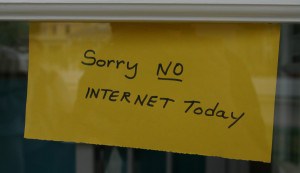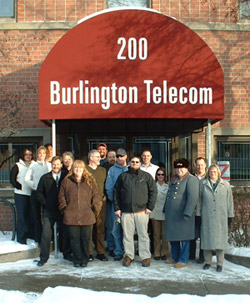A Tennessee state senator has introduced a bill that would fine the state’s cable companies for running racy television advertising on its cable channels.
Dubbed the “Girls Gone Wild Bill,” the legislation would hopefully curb cable operators’ willingness to run suggestive advertising, according to the bill’s author Sen. Doug Jackson (D-Dickson).
This isn’t the first go around for Jackson’s bill, having failed to pass during the last two legislative sessions. But Jackson believes the third time is a charm, passing a vote in the Senate Commerce Committee 8-0, with one member abstaining.
The Tennessean talked with Jackson to learn why the bill was necessary:
Jackson has said he got the idea for the proposal after seeing partially censored commercials for “Girls Gone Wild” videos that show young women disrobing and acting out other sexual situations.
“They’re provocative and shocking to a lot of families trying to raise children,” Jackson said.
The bill would make any television advertisements considered “obscene” to be illegal. Obscenity, Jackson said, is not protected by the First Amendment. Under common law, it is established by community standards, and in Tennessee, each judicial district can establish for themselves what is considered obscene.
“A jury in Dickson County could determine the videos being sold are obscene, which makes it an illegal product,” he said.
The legislation has gotten Jackson plenty of attention across the state, as Tennessee media covered the unusual legislation. But some fear Tennessee could become a laughing stock over bills like these.
Columnist Gail Kerr, also writing for the Tennessean, called the mad rush of oddball legislation a bunch of “crazy crap”:
You can sure tell the Tennessee General Assembly doesn’t have any money to spend this year.
After a slam dunk, fast special session on education, our esteemed lawmakers have returned to their usual bad habits.
They have filed legislation that would kill Nashville’s honky tonks, debated whether to outlaw putting electronic chips in people and whether to amend the state constitution to assure you the right to catch a catfish.
Sen. Doug Jackson wants a constitutional amendment to assure every Tennessean has the right to hunt and fish. No one is trying to stop you from hunting and fishing. Jackson also is bringing back his “Girls Gone Wild” legislation, aimed at stopping the late night television commercials promoting the raunchy videos. He was inspired by watching the commercials.
One thing’s for sure, state law prevents these folks from taking campaign donations while in session. With two of them running for governor, one running for Congress and a slew up for re-election, they’ll start getting eager to adjourn pretty quick. It cannot happen too soon.
[flv]http://www.phillipdampier.com/video/WKRN Nashville Girls Gone Wild Bill 02-09-2010.flv[/flv]
WKRN-TV in Nashville reports Sen. Doug Jackson’s bill would allow communities to define certain ads on cable television obscene and have them pulled off the air. (1 minute)
[flv width=”480″ height=”380″]http://www.phillipdampier.com/video/WSMV Nashville Senator-Companies Liable For Obscene Ads 2-9-2010.flv[/flv]
Some members of the Tennessee Legislature believe the state’s cable companies should not be taking money from companies peddling smut, as WSMV-TV Nashville reports. (2 minutes)
Protesting adult programming on cable and satellite television is a long-standing tradition in Tennessee. Some elected officials even dislike the prospect of MTV running on state cable systems. But most agree lawmakers have the biggest problem with cable’s dirty little secret — extremely explicit adult programming aired on pay per view channels. Most cable systems don’t go out of their way to promote this type of programming, but viewers learn it is there when skimming electronic program guides. Most adult movies have titles that leave little doubt what they offer viewers willing to purchase it, and plenty do — it’s very profitable for most cable operators.
[flv width=”480″ height=”292″]http://www.phillipdampier.com/video/WDEF Chattanooga Fowler Objects To EPB Content 11-02-09.flv[/flv]
David Fowler, a former state senator from Signal Mountain, last November denounced EPB, Chattanooga’s city-owned fiber television and broadband provider, for allowing adult programming on the lineup in the first place. (WDEF-TV Chattanooga) (11/2/2009 – 1 minute)


 Subscribe
Subscribe









